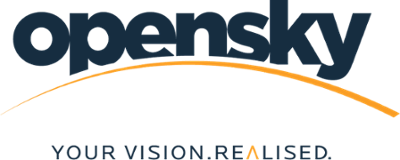Building Chains of Trust in the Public Sector
Public sector IT is about trust, and IT consultancy OpenSky reports an increased interest in deploying blockchain to meet this need.
As a technology, blockchain has been quietly maturing for some years now; quietly at least in the sense that work is under way to demonstrate useful applications in surprising places, because the fuss around the distributed ledger technology itself is anything but quiet.
Across Europe, on both a national level and on an EU basis, blockchain is being considered for delivering so-called e-government – and with public-facing offices shuttered across the continent due to the coronavirus pandemic, delivering public services online couldn’t be more important.
“The reform unit in the Department of Public Expenditure and Reform is issuing guidance around the potential uses and challenges to government,” said Susanne McCabe, business development manager at IT consultancy OpenSky.
OpenSky delivers IT consultancy and services to large business and government clients in Ireland and Poland, as well as other countries in Europe and North America.
Blockchain is coming up more and more in conversations, said McCabe. In government, though, technology must prove itself.
“Is there a use case in government or not? The government is very clear that they don’t onboard a technology for the sake of it,” she said.
International examples abound, however.
“If you look across Europe, there’s a lot going on in different countries. Estonia would be one of the counties testing it; they have astonishing digital services – but they were coming from a place where they didn’t have a lot of legacy digital systems,” said McCabe.
“They were also the first to look at blockchain e-law.”
Meanwhile, other applications include Sweden’s law commission’s adoption of blockchain for land registry, while Romania uses it for penalty points in road safety.
“Britain has done a lot in food supply chains, seeing that all compliance checks were done at a certain time and place,” she said.
OpenSky has itself applied for EU Horizon 2020 research funding for a project that looks at the use of blockchain as the digital driver in maintaining compliance in a fractional ownership model with key partners in Ireland, Germany and Spain.
“Last year we started this journey; while there are some key organisations very established in this area delivering blockchains for financial services, we don’t see a specialist in government – and this is where we come in. So, this year, we have undertaken some key initiatives to build our capability and will launch our Blockchain 4 Government practice towards the end of 2020.”
Ireland is in a good position, McCabe said, when it comes to adopting blockchain.
“It’s in a really strong, exciting place. We have Blockchain Ireland and the Blockchain Summit and we have a government that is open to it. As a company, Ireland’s only govtech specialist, we are making the point that the citizen can be put at the heart of all blockchain designs,” she said.
In practice, one of the benefits this brings is enhanced privacy. Blockchain makes use of decentralised identifiers (DID), pseudo-anonymous identifiers for a person, company, object.
“Each DID is secured by a private key. Only the private key owner can prove that they own or control their identity. One person can have many DIDs, which limits the extent to which they can be tracked across the multiple activities in their life,” said McCabe.
“For example, a person could have one DID associated with a gaming platform, and another entirely separate DID associated with their credit reporting platform.”
This year OpenSky launched a new blockchain research division, exploring how the technology can enable new methods of government engagement with the public – and vice-versa.
“When I get up and get on with my daily life, there’s very little that doesn’t interact with multiple government agencies. Driving is a good example: is my car taxed, is my car insured, do I have penalty points, did I speed, did I not speed, is my car NCT'd, is it registered properly and so on.
“There are a lot of agencies that I have to interact with. Blockchain can break the silos,” she said.
OpenSky is now developing proofs of concept with some of its government clients to work through how the technology adapts to their individual tasks, as well as working with its strategic partners, Microsoft and PA Consulting.
As the technology is relatively new, it will also require new skills. Indeed, OpenSky’s head of research is advertising at the minute for a research fellow specialising in blockchain
“It’s to help us continue to stay ahead of advancements in this technology,” said McCabe.
New jobs, even new categories of job, will be the logical outworking of this.
“A good engineer, these days, is having to learn new technologies all the time, and there’s a lot that comes out from partners of ours, such as Microsoft, to help that,” she said.


